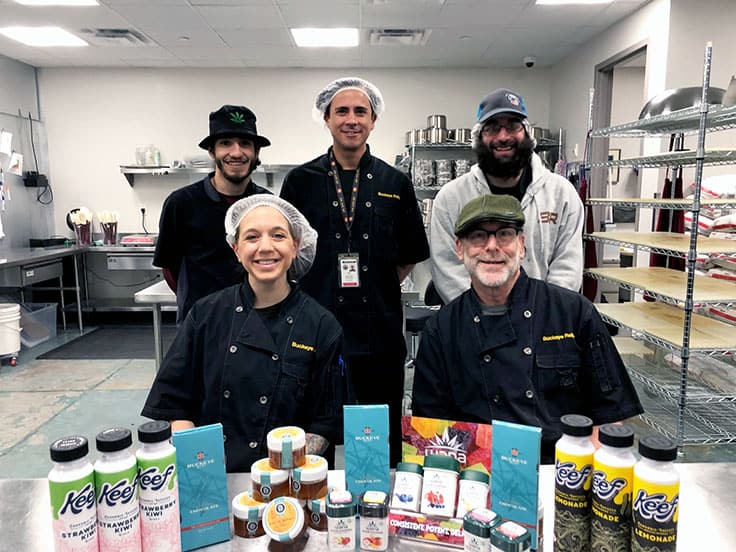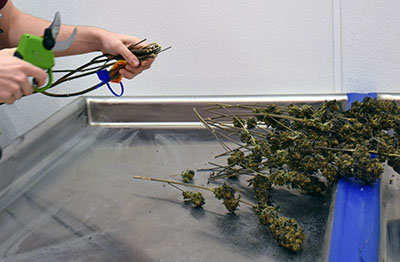LAS VEGAS, NV – April 6, 2021 – Cannabis Business Times, the leading B2B publication dedicated to the cultivator/grower segment of the cannabis industry, and Cannabis Conference, the leading educational event and expo for professionals at plant-touching cannabis businesses, is pleased to announce the launch of its inaugural Cannabis Leadership Awards (C-LAS).
With the support of FOHSE – Future of Horticultural Science + Engineering, the C-LAS will recognize five cannabis industry professionals who exemplify the leadership qualities needed to inspire and empower those around them and who work toward the betterment of the entire industry.
Cannabis Leadership Awards recipients will have made significant contributions to the cannabis industry, such as:
- Contributing to the industry’s advancement through their innovation and expertise;
- Enhancing the lives of employees, customers, communities and the industry at large through their leadership, generosity, charitable giving;
- Excelling in environmental stewardship;
- Working with legislators and regulators in crafting and updating cannabis laws and regulations in a productive way; and/or
- Otherwise making a positive impact on the industry.
Cannabis Leadership Awards recipients will be recognized at a special awards reception at the Cannabis Conference 2021 (Aug. 24-26 at the Paris Las Vegas Hotel & Casino) and featured in Cannabis Business Times magazine.
“We are thrilled to launch the Cannabis Leadership Awards,” Noelle Skodzinski, editorial director for GIE Media’s Cannabis Group said. “Many awards recognize corporate achievements, but we want to celebrate truly amazing people in the cannabis industry—those who inspire others and have a positive impact on their colleagues, the cannabis industry and the world around them.”
Cannabis Group Publisher Jim Gilbride said, “In any industry, there are people who just stand out as exceptional in all they do. People who make the workday better for their colleagues and make their communities and the industry better by their actions. They deserve to be recognized, and we are pleased to launch the Cannabis Leadership Awards to give those leaders in the cannabis industry the recognition they deserve.”
James Bradley, Chief Marketing Officer, FOHSE – Future of Horticultural Science + Engineering, added, “As the cannabis industry solidifies its foothold in regions around the world, I believe it’s crucial to laude those who are truly raising the bar. The industry continues to face an uphill battle with some of the cultural stigmas surrounding it, which is a big reason why FOHSE has partnered with Cannabis Business Times and their annual Cannabis Leadership Awards ceremony. This is a prime opportunity to elevate the best of the best as a beacon for all entrepreneurs, as well as to show the world how the industry is maturing.”
The Cannabis Leadership Awards recipients will be professionals who work at cannabis cultivation and/or vertically integrated dispensary businesses (with cultivation and retail operations) in North America.
Nominees to the C-LAS must be employed by and involved in an operation that has an active licensed cannabis cultivation or vertically integrated (cultivation and retail) operation in North America.
The deadline for nominations is May 20, 2021. Nominations for the Cannabis Leadership Awards may be submitted at: www.cannabisconference.com/form/CannabisLeadershipAwards.
About Cannabis Conference
Cannabis Conference 2021, presented by Cannabis Business Times, Cannabis Dispensary, and Hemp Grower, is the leading educational provider for plant-touching businesses in the legal cannabis and hemp markets. The three-day event will be held at Paris Las Vegas Hotel & Casino in Las Vegas, Nev., on August 24-26, 2021.
The Cannabis Conference exhibition hall will feature industry-leading technologies, solutions and services for the professional cannabis cultivator and retail businesses.
For more information, visit www.cannabisconference.com.










